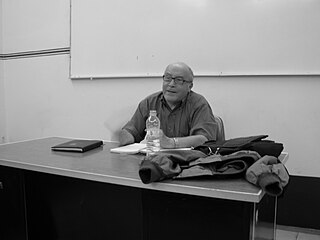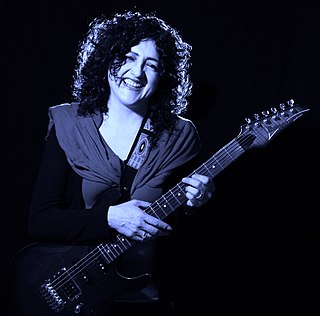Related Research Articles

Sucre is the de jure capital city of Bolivia, the capital of the Chuquisaca Department and the sixth most populous city in Bolivia. Located in the south-central part of the country, Sucre lies at an elevation of 2,790 m (9,150 ft). This relatively high altitude gives the city a subtropical highland climate with cool temperatures year-round. Over the centuries, the city has received various names, including La Plata, Charcas, and Chuquisaca.

Andean music is a group of styles of music from the Andes region in South America.
Violeta del Carmen Parra Sandoval was a Chilean composer, singer-songwriter, folklorist, ethnomusicologist and visual artist. She pioneered the Nueva Canción Chilena, a renewal and a reinvention of Chilean folk music that would extend its sphere of influence outside Chile.

María del Rosario Valdez Campos, known professionally as Chayito Valdez, was a Mexican singer and actress from Sinaloa. She was associated with and contributed to the folk music of Mexico.

Cueca is a family of musical styles and associated dances from Chile, Argentina, and Bolivia. In Chile, the cueca holds the status of national dance, where it was officially declared as such by the Pinochet dictatorship on September 18, 1979.

María Luz Casal Paz is a Spanish rock singer. She grew up in Boimorto, Galicia (Spain), took singing, piano and ballet classes, and moved to Madrid to pursue a career as a musician.

Jaime Sáenz Guzmán was a Bolivian writer, poet, novelist, journalist, essayist, illustrator, dramaturge, and professor, known best for his narrative and poetic works. His poetry, though individual to the point of being difficult to classify, bears some similarities with surrealist literature.

María Concepción Balboa Buika, known as Concha Buika or just Buika, is a Spanish singer. Her album Niña de Fuego was nominated for the 2008 Latin Grammy Award for Album of the Year and La Noche Más Larga was nominated for Best Latin Jazz Album at the 56th Annual Grammy Awards in 2014.

Diego Valverde Villena, born on April 6, 1967, is a poet, essayist and polyglot who holds triple-citizenship. He is Peruvian by birth to Spanish and Bolivian parents.

Renato Prada Oropeza was a Bolivian and Mexican scientist-literary researcher and writer, author of novels, short stories and poetry books, hermeneutics, semiotics and literary theory. Many of his literary works have been translated into several languages. He was one of the most distinguished semioticians in Mexico and Latin America.

María Josefa Mujía (1812–1888) was a Bolivian poet. Blind from the age of 14, she was one of Bolivia's first Romantic poets and is considered the country's first woman writer following its independence. Her poetry was lauded for its sincerity and lyricism, while its dark and sorrowful content earned her the moniker "la Alondra del dolor".
Antonio Colinas Lobato is a Spanish writer and intellectual who was born in La Bañeza, León, Spain on January 30, 1946. He has published a variety of works, but is considered to be above all a poet. He won Spain's National Prize for Literature in 1982, among several other honors and awards.

Adriana Salvatierra Arriaza is a Bolivian political scientist and politician who served as president of the Senate in 2019. A member of the Movement for Socialism, she served as senator for Santa Cruz from 2015 to 2020 and was a substitute senator for Santa Cruz under Carlos Romero in 2015. At age twenty-nine, Salvatierra was the youngest legislator and third woman to hold the presidency of the Senate and was the youngest individual to ever exert presidential authority, albeit briefly in an acting capacity.

Silvia Velarde Pereyra, better known by her stage name, Sibah, is a Bolivian blues and rock and roll singer-songwriter.

Jeanine Áñez Chávez is a Bolivian lawyer, politician, and television presenter who served as the 66th president of Bolivia from 2019 to 2020. A former member of the Social Democratic Movement, she previously served two terms as senator for Beni from 2015 to 2019 on behalf of the Democratic Unity coalition and from 2010 to 2014 on behalf of the National Convergence alliance. During this time, she served as second vice president of the Senate from 2015 to 2016 and in 2019 and, briefly, was president of the Senate, also in 2019. Before that, she served as a uninominal member of the Constituent Assembly from Beni, representing circumscription 61 from 2006 to 2007 on behalf of the Social Democratic Power alliance.

Pilar Paz Pasamar was a Spanish poet and writer whose work has been translated into Italian, Arabic, French, English and Chinese. She was a member of the Cádiz branch of the 1950s poetic generation. She was a member of the Real Academia Hispano Americana de Cádiz since 1963. Her awards and honors include second place from the Premio Adonáis de Poesía for "Los buenos días" (1954), Adoptive Daughter of the city of Cádiz (2005), Meridiana Prize of the Andalusian Institute of Women (2005), included in the section "Own Names" of the Instituto Cervantes, and Author of the Year by the Andalusian Center of Letters of the Junta de Andalucía (2015). The city council of her hometown annually awards the Pilar Paz Pasamar Prize for short stories and poetry by women.
"Macorina" is a song written by Costa Rica-born Mexican singer Chavela Vargas and based on a poem by Alfonso Camín. It was first recorded by Vargas in 1961. The song was controversial due to its reference to romantic longing between women and became a "lesbian hymn."
Events from the year 2022 in Bolivia.
The following is a chronology of notable events from the year 2023 in Bolivia.
References
- ↑ Shepherd, John; Laing, Dave (2005). Continuum encyclopedia of popular music of the world. Continuum. p. 210. ISBN 978-0-8264-7436-0 . Retrieved 17 May 2011.
- ↑ Read, James; Guides, Rough (2008-02-04). The Rough Guide to Bolivia. Penguin. pp. 421–. ISBN 978-1-4053-8374-5 . Retrieved 17 May 2011.
- ↑ Machicado, Giannina (8 September 2022). "Matilde Casazola, 48 años de vigencia poética y musical". La Razón (La Paz) (in Spanish). Retrieved 1 February 2024.